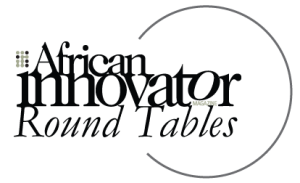
Buildexpo Africa is the only show with the widest range of the latest technology in construction machinery, building material machines, mining machines, construction vehicles and construction equipment. After 18 successful editions of Buildexpo in Kenya and Tanzania, East Africa’s largest building and construction fair now ventures into the Ethiopian market. The first edition of Buildexpo in Ethiopia will provide international business platform by enabling global investment opportunities.
Ethiopia has one of the fastest growing economies in the world. The country has been registering a double digit growth for the last twelve consecutive years. Located in the region of the Horn of Africa, Ethiopia is the 2nd most populated country in Africa. Ethiopia’s construction sector has outgrown that of its neighbors. The construction sector will grow at an annual average growth of 18.6% and will be fueled by a swell in infrastructure investments in the region. Ethiopia has also several agreements that grant duty free access to many countries, including European countries and the USA. Business friendly climate, duty free access and competitive labour costs have successfully created new investments and employment opportunities. Ethiopia is also a member of COMESA which has an access to 20 African countries.
Buildexpo will bring you exhibitors from over 28 countries who are the finest in infrastructure development, with over hundreds of products, equipment and machinery on display.
Come, be a part of progress in Africa!

The format of the event is interactive with roundtable discussions and case studies from leading healthcare CIOs, as well as healthcare entrepreneurs and government functionaries, all sharing their experiences on what works and what does not.
Who should attend?

The Africa Energy Indaba Conference will discuss, debate and seek solutions to enable adequate energy generation across the continent.
THE CONFERENCE WILL PROVIDE AN OPPORTUNITY TO:
- debate policy
- review industrial progress and market trends
- discuss the efficiency of various public support mechanisms and public-private partnerships across the continent
- review new data and the latest technological trends globally
Delegates in the early stages of their careers will have an unprecedented opportunity to develop their knowledge and understanding of the energy sector and to lay the foundations for their role as “Future Energy Leaders”.
WHY SHOULD YOU ATTEND?
- Update your knowledge on the current trends within energy across the African continent with input from global authorities
- Explore future trends to position your business as effectively as possible
- Explore the growing interest in ‘green’ and sustainability issues in the context of developing countries. New opportunities will emerge and new careers will be created
- Understand the research needed to transform the primary energy related industries of oil, gas and coal so these abundant resources can continue to be exploited responsibly
- Discover examples and best practices from other industries
- Find out how government and business leaders plan to address the energy demand
- Share ideas and network with business associates in a rewarding, off-the-record setting
- Understand how the new energy landscape is creating new opportunities to address our continent’s challenges, improve the way we work, impact training and development and attract new talent and technology to Africa.
Delegates, drawn from all continents, represent an unrivalled combination of industry experts, project developers, financiers, energy users, government officials and manufacturers.
NETWORK WITH PERSONALITIES IN THE FOLLOWING AREAS:
- Government & Municipality
- Project Developers/Consultants/Analysts
- Environmental Engineering
- Equipment & Technology Solutions
- Banks/Investors/Insurance
- Automotive & Transport
- Green Energy
- Commodity Traders / Agents & Brokers
- Associations & Press
REGISTER TO ATTEND THE AFRICA ENERGY INDABA 2017 AND BENEFIT FROM:
- Networking amongst more than 600 senior level energy sector experts and decision-makers planning and developing the 21st century energy requirements for Africa.
- Hearing from more than 160 expert speakers discussing the latest and best industry practice.
- Visiting over 100 leading energy suppliers showcasing the latest technologies, equipment and services.
- Reviewing policy and regulation, industry progress and changing market trends.

The conference brings together the brightest and most innovative minds that are shaping the way we generate energy. Delegates and VIPs flock to the conference to learn about the latest developments, innovations and investment opportunities.
Year on year, the event provides our partners with access to over 600 African energy utility and IPP decision makers, who traditionally are difficult to reach. And most importantly, the show allows them to meet real buyers.
The major goal of this Training of Trainers (ToT) workshop is to create a large pool of experts in the area of gender-responsive economic policy management. This pool of experts will be equipped to act as trainers for the two-week course on gender-responsive economic policy management organized for middle and senior African policymakers and which takes place on an annual basis at IDEP’s headquarters in Dakar, Senegal. Successful applicants may also be considered to be included in IDEP’s roster of gender experts.
The course aims at providing training on agricultural policy with a view to strengthening and/or renewing the knowledge and capacity of African policy makers, including senior managers, negotiators, advisors, planners and analysts, to meet the core challenges of growing the agricultural sector as a central engine of national economic development and social policy. In doing so, the course will expose participants not only to the current state of knowledge and the comparative lessons which are available to Africa, but also some of the best practices that serve as pertinent examples of how an integrated and comprehensive agricultural policy regime has been used to promote economic transformation and social well-being.
The course will serve the policy concerns which most African governments share of, among other things, improving agricultural output and productivity, nurturing the linkages between agriculture and other economic sectors, increasing national food security, combating poverty, expanding employment, promoting environmental sustainability, and enhancing sustainable rural livelihoods, including gender equality. These are concerns that have also been embraced by the African Union, the Regional Economic Communities (RECs), the Economic Commission for Africa (ECA), the African Development Bank (AfDB), and NEPAD.
